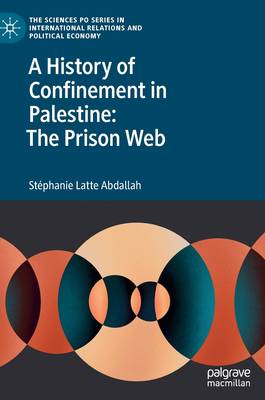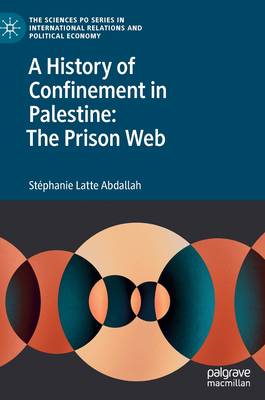
- Afhalen na 1 uur in een winkel met voorraad
- Gratis thuislevering in België vanaf € 30
- Ruim aanbod met 7 miljoen producten
- Afhalen na 1 uur in een winkel met voorraad
- Gratis thuislevering in België vanaf € 30
- Ruim aanbod met 7 miljoen producten
A History of Confinement in Palestine: The Prison Web
Stéphanie Latte AbdallahOmschrijving
This book deals with the contemporary history of the imprisonment of Palestinians in Israeli prisons since 1967, and, since the 2000s, in Palestinian facilities. The prison experience is widely shared in the Occupied Palestinian Territories. It endurably marks personal and collective stories. Since the Occupation of the Palestinian Territories in 1967, mass incarceration has spun a prison web, a kind of suspended detention. Approximately, 40 percent of the male population has been to prison. It shows how the judicial and prison practices applied to Palestinian residents of the OPT are major fractal devices of control contributing to the management of Israeli borders, and shape a specific bordering system based on a mobility regime: such borders are mobile, networked, and endless. This history of confinement is that of the prison web, and of the in-between political, social, and personal spaces people weave between Inside and Outside prison. Based on in-depth ethnographic fieldwork, oral and written sources, archives, and extensive institutional documentation, this political anthropology book deals with carceral citizenships and subjectivities. Over time, imprisonment has had profound effects on personal experiences: on masculinities, femininities, gender relations, parentality, and intimacy. Woven like a web, this story is built around places, moments, people, and their testimonies.
Specificaties
Betrokkenen
- Auteur(s):
- Vertaler(s):
- Uitgeverij:
Inhoud
- Aantal bladzijden:
- 416
- Taal:
- Engels
- Reeks:
Eigenschappen
- Productcode (EAN):
- 9783031087080
- Verschijningsdatum:
- 30/08/2022
- Uitvoering:
- Hardcover
- Formaat:
- Genaaid
- Afmetingen:
- 148 mm x 210 mm
- Gewicht:
- 680 g

Alleen bij Standaard Boekhandel
Beoordelingen
We publiceren alleen reviews die voldoen aan de voorwaarden voor reviews. Bekijk onze voorwaarden voor reviews.











